Speakers
Nawal El Saadawi
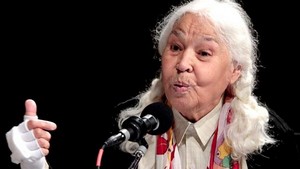 Nawal El Saadawi is a medical doctor and international women’s right activist, feminist writer and the founder and president of The Arab Women’s Solidarity Association and the co-founder of the Arab Association for Human Rights. She is an honorary doctor at universities on three continents and has won many awards for her work; the North-South Prize from the Council of Europe (2004), the Inana International Prize (2005), the Stig Dagerman Prize (2011) and the International Peace Bureau Prize (2012) to mention a few.
Nawal El Saadawi is a medical doctor and international women’s right activist, feminist writer and the founder and president of The Arab Women’s Solidarity Association and the co-founder of the Arab Association for Human Rights. She is an honorary doctor at universities on three continents and has won many awards for her work; the North-South Prize from the Council of Europe (2004), the Inana International Prize (2005), the Stig Dagerman Prize (2011) and the International Peace Bureau Prize (2012) to mention a few.
Dr Saadawi has a life long commitment to women’s rights and to combatting all forms of violence against women. She was imprisoned by the Egyptian President Anwar al-Sadat in 1981 for being regarded as controversial and dangerous to the Egyptian government. She was the first person to bring female genital mutilation into the public domain, and has lectured and been an activist ever since. Dr Saadawi is 85 years old.
Buthina Khoury
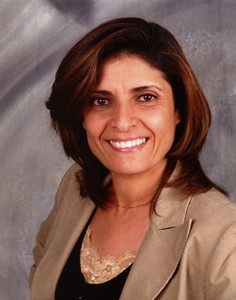 Buthina Khoury holds a BA in Filmmaking and Photography from the Massachusetts College of Fine Arts in Boston. She is a Palestinian independent filmmaker who established Majd Production Company in Ramallah in 2000. The company's main objective is to produce documentaries highlighting social and political Palestinian issues. Khoury has been awarded multiple awards for her documentaries, including The Silver Muhr at the Dubai Film Festival in 2007. Her films include Women in Struggle (2004), which presents rare testimony from four female Palestinian ex-detainees who disclose their experiences during their years of imprisonment.
Buthina Khoury holds a BA in Filmmaking and Photography from the Massachusetts College of Fine Arts in Boston. She is a Palestinian independent filmmaker who established Majd Production Company in Ramallah in 2000. The company's main objective is to produce documentaries highlighting social and political Palestinian issues. Khoury has been awarded multiple awards for her documentaries, including The Silver Muhr at the Dubai Film Festival in 2007. Her films include Women in Struggle (2004), which presents rare testimony from four female Palestinian ex-detainees who disclose their experiences during their years of imprisonment.
Yevgeniya Averhed
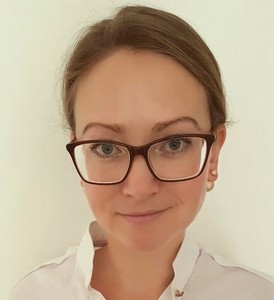 Yevgeniya Averhed holds an MA in Human Rights from Stockholm Theological High School and is an international Projects Coordinator and manager at the Department for International Cooperation, Folkuniversitetet Uppsala. She works with national and transnational projects developing methods and training for integration of third country nationals and human rights. Since 2009, she has initiated more than 20 projects for empowerment and integration of minority women and other sensitive groups. She is the project leader of FATIMA: Preventing Honour Related Violence through Dialogue and Education with Minority NGO:s. FATIMA is a three-year DAPHNE funded project involving academic and activist partners in Greece, Portugal, the UK and Sweden (ORU is the Swedish academic partner).
Yevgeniya Averhed holds an MA in Human Rights from Stockholm Theological High School and is an international Projects Coordinator and manager at the Department for International Cooperation, Folkuniversitetet Uppsala. She works with national and transnational projects developing methods and training for integration of third country nationals and human rights. Since 2009, she has initiated more than 20 projects for empowerment and integration of minority women and other sensitive groups. She is the project leader of FATIMA: Preventing Honour Related Violence through Dialogue and Education with Minority NGO:s. FATIMA is a three-year DAPHNE funded project involving academic and activist partners in Greece, Portugal, the UK and Sweden (ORU is the Swedish academic partner).
Anna-Karin Andershed
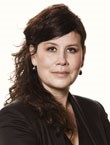 Anna-Karin Andershed is a Professor of Psychology, Dean of the Faculty Board of Humanities and Social Sciences, and research director of the Center for Criminological and Psychosocial Research (CAPS). Her research is focused on adjustment and socialization from a developmental life span perspective (from childhood to adulthood), and she is the Principal Investigator of two large scale prospective longitudinal programmes: the SOFIA-study and the IDA-program. Main areas of interest are the development of antisocial behavior, normbreaking behavior and aggression, development of interventions targeting antisocial behavior, and structured assessment. Main areas of teaching are developmental psychology and criminology.
Anna-Karin Andershed is a Professor of Psychology, Dean of the Faculty Board of Humanities and Social Sciences, and research director of the Center for Criminological and Psychosocial Research (CAPS). Her research is focused on adjustment and socialization from a developmental life span perspective (from childhood to adulthood), and she is the Principal Investigator of two large scale prospective longitudinal programmes: the SOFIA-study and the IDA-program. Main areas of interest are the development of antisocial behavior, normbreaking behavior and aggression, development of interventions targeting antisocial behavior, and structured assessment. Main areas of teaching are developmental psychology and criminology.
Jeff Hearn
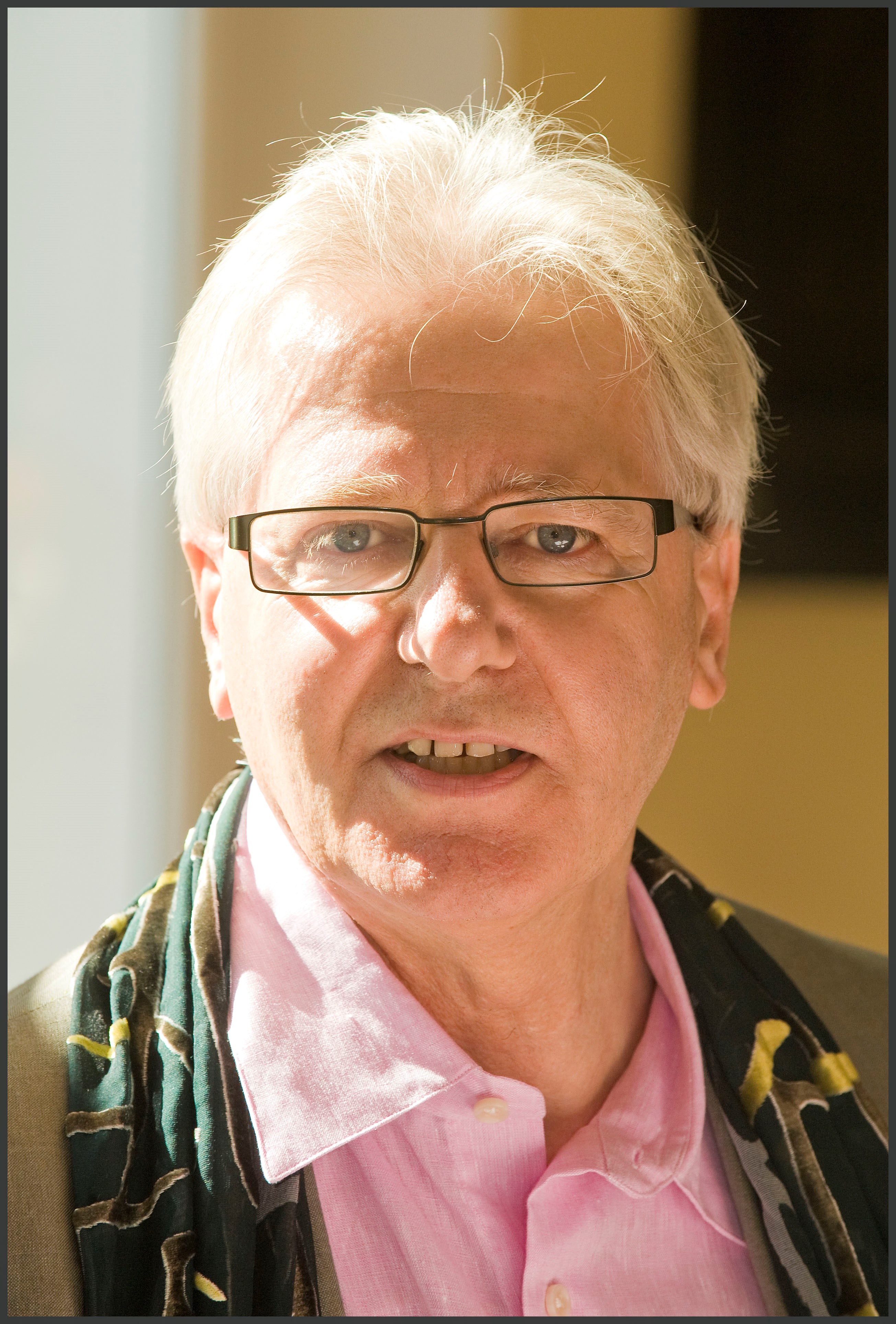 Jeff Hearn (ORU) is Guest Faculty Research Professor, based in Gender Studies, Örebro University, Sweden; Research Professor in Sociology, University of Huddersfield, Professor Emeritus, Hanken School of Economics, Finland. He has published extensively on such questions as: gender, sexuality and violence; men’s violence against women and children; critical studies on men and masculinities; work, organisations and management; globalisation and transnationalisation; social policy; and social theory. He is managing co-editor of Routledge Advances in Feminist Studies and Intersectionality book series. His books include: The Violences of Men (Sage, 1998); Gender, Sexuality and Violence in Organizations (with Wendy Parkin, Sage, 2001); Rethinking Transnational Men (edited with Marina Blagojević and Katherine Harrison, Routledge, 2013); and Men of the World: Genders, Globalizations, Transnational Times (Sage, 2015). (See http://www.oru.se/Personal/jeff_hearn )
Jeff Hearn (ORU) is Guest Faculty Research Professor, based in Gender Studies, Örebro University, Sweden; Research Professor in Sociology, University of Huddersfield, Professor Emeritus, Hanken School of Economics, Finland. He has published extensively on such questions as: gender, sexuality and violence; men’s violence against women and children; critical studies on men and masculinities; work, organisations and management; globalisation and transnationalisation; social policy; and social theory. He is managing co-editor of Routledge Advances in Feminist Studies and Intersectionality book series. His books include: The Violences of Men (Sage, 1998); Gender, Sexuality and Violence in Organizations (with Wendy Parkin, Sage, 2001); Rethinking Transnational Men (edited with Marina Blagojević and Katherine Harrison, Routledge, 2013); and Men of the World: Genders, Globalizations, Transnational Times (Sage, 2015). (See http://www.oru.se/Personal/jeff_hearn )
Maria Hagberg
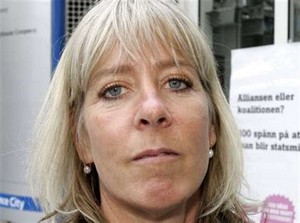 Maria Hagberg holds an MA in Social Work and she is a writer and a debater. She has experience of a lifelong international women’s rights activist, feminist political campaigner and a professional combater for gender equality and against all forms of violence against women and girls. Amongst her publications is Vid tjugo börjar den ruttna: en bok om hedersvåld och modiga kvinnor (2009) (Premiss förlag) about honour crimes in Sweden and “Replik” about gender mainstreaming in Tidskrift för genusvetenskap/Journal for Gender Studies 36(3) 2015. Many of her articles during the years are published in daily press and in foreign press and can be found in her website www.socialtoolbox.se
Maria Hagberg holds an MA in Social Work and she is a writer and a debater. She has experience of a lifelong international women’s rights activist, feminist political campaigner and a professional combater for gender equality and against all forms of violence against women and girls. Amongst her publications is Vid tjugo börjar den ruttna: en bok om hedersvåld och modiga kvinnor (2009) (Premiss förlag) about honour crimes in Sweden and “Replik” about gender mainstreaming in Tidskrift för genusvetenskap/Journal for Gender Studies 36(3) 2015. Many of her articles during the years are published in daily press and in foreign press and can be found in her website www.socialtoolbox.se
In 2016 she will publish her second book about women in war based on her interviews with women in ME during 2007-2012 (Carlssons Förlag AB). Now she works as head of Child Assessment and Child Protection.
Maria Larsson
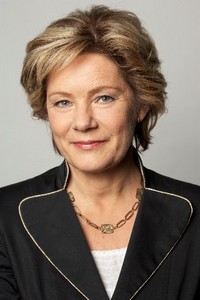 Maria Larsson is the Örebro County Governor (2015) and a former Member of the Swedish Parliament (1998-2014). She served as First Vice Party President of the Swedish Christian Democrats (2003-2015) and deputy minister of Social Affairs (2006-2014).
Maria Larsson is the Örebro County Governor (2015) and a former Member of the Swedish Parliament (1998-2014). She served as First Vice Party President of the Swedish Christian Democrats (2003-2015) and deputy minister of Social Affairs (2006-2014).
Ali Rashidi
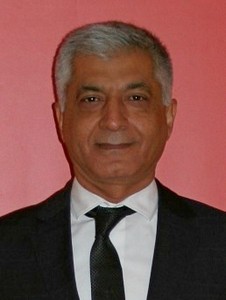 Ali Rashidi is a head of the Department for International Cooperation of Folkuniversitetet, Uppsala. After Sweden joined the EU in 1995, Ali Rashidi worked as a project manager for a large number of European and international projects in various programs related to employment and training issues. Ali is an expert in social work and integration both on strategical and implementational levels; he has been working with the issue in various projects and initiatives in Western and Eastern Europe.
Ali Rashidi is a head of the Department for International Cooperation of Folkuniversitetet, Uppsala. After Sweden joined the EU in 1995, Ali Rashidi worked as a project manager for a large number of European and international projects in various programs related to employment and training issues. Ali is an expert in social work and integration both on strategical and implementational levels; he has been working with the issue in various projects and initiatives in Western and Eastern Europe.
Nikolaos Pitsoulis
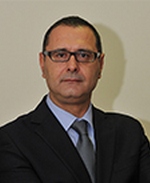 Nikolaos Pitsoulis is the chairman of “DIMITRA” Training Organization. He has an extensive experience on Planning, developing and Management of vocational training programmers for employers, employees and unemployed. He has been involved in many European and National projects regarding integration, social inclusion, diversity and gender equality and he has worked extensively with national human rights institutions, NGOs and civil society.
Nikolaos Pitsoulis is the chairman of “DIMITRA” Training Organization. He has an extensive experience on Planning, developing and Management of vocational training programmers for employers, employees and unemployed. He has been involved in many European and National projects regarding integration, social inclusion, diversity and gender equality and he has worked extensively with national human rights institutions, NGOs and civil society.
He has been responsible for the planning and execution of a variety of developmental/ humanitarian projects, implemented in the entire world.
His qualifications also include, research and development of educational innovative and participative tools and methodologies, design of curriculums and training materials, implementation of training needs analysis, training evaluation, project management, coaching and mentoring.
Umme Imam
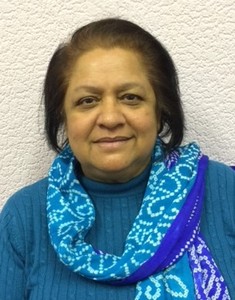 Umme Imam is Executive Director of The Angelou Centre, a minority women’s organisation which has promoted economic independence for BAMER women in the North East. It is nationally recognised for its holistic support and advocacy for women and children survivors of domestic abuse. Umme has extensive experience in community development work, especially in relation to domestic violence, in India (where she was born and educated) and in the UK, where over the last thirty years she has been active in the development and management of a range of voluntary projects for minority women as well as ensuring their strategic representation locally and nationally.
Umme Imam is Executive Director of The Angelou Centre, a minority women’s organisation which has promoted economic independence for BAMER women in the North East. It is nationally recognised for its holistic support and advocacy for women and children survivors of domestic abuse. Umme has extensive experience in community development work, especially in relation to domestic violence, in India (where she was born and educated) and in the UK, where over the last thirty years she has been active in the development and management of a range of voluntary projects for minority women as well as ensuring their strategic representation locally and nationally.
She has co-authored Children’s Perspectives on Domestic Violence, was part of the collective that campaigned to set up and PANAH refuge in Newcastle and currently co-ordinates the Black Women’s Domestic Violence Network. The Centre also hosts the North East Women’s Network.
Dr Hannana Siddiqui
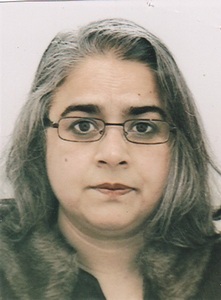 Dr Hannana Siddiqui works as a senior researcher for the Angelou Centre on the Fatima Project. Dr Siddiqui’s has worked on violence against black and minority women in the UK for 30 years. Her wide range of work has included undertaking casework and expert reports writing as well as campaigning and policy work on domestic violence, forced marriage, ‘honour’ based violence (HBV), suicide and self-harm, immigration and asylum law, racism and religious fundamentalism.
Dr Hannana Siddiqui works as a senior researcher for the Angelou Centre on the Fatima Project. Dr Siddiqui’s has worked on violence against black and minority women in the UK for 30 years. Her wide range of work has included undertaking casework and expert reports writing as well as campaigning and policy work on domestic violence, forced marriage, ‘honour’ based violence (HBV), suicide and self-harm, immigration and asylum law, racism and religious fundamentalism.
Dr Siddiqui is a co-founder of Women Against Fundamentalism and End Violence against Women coalition. She became a freelance consultant in 2015, and works for various organisations including Southall Black Sisters (SBS), where she has worked for 28 years; the Angelou Centre; and the Women’s Resource Centre. She has won several awards, but declined an MBE in 2004.
Anne van Nistelrooij
 Anne van Nistelrooij is a policy officer in the gender equality Unit of the Directorate General for Justice and Consumers, of the European Commission (EU). In this capacity she deals with the Commission's initiatives to combat gender based violence, including specifically harmful practices such as female genital mutilation, honour-related crimes, and early and forced marriage.
Anne van Nistelrooij is a policy officer in the gender equality Unit of the Directorate General for Justice and Consumers, of the European Commission (EU). In this capacity she deals with the Commission's initiatives to combat gender based violence, including specifically harmful practices such as female genital mutilation, honour-related crimes, and early and forced marriage.
Sofia Strid
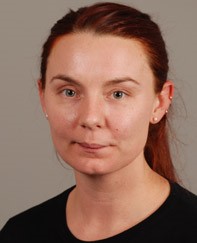 Sofia Strid is Senior Associate Lecturer and docent in Gender Studies at Örebro University (ORU). Her research interests are oriented towards feminist theory and methods for knowledge production and knowledge transfer, and focus on institutions, policy and violence from feminist, international and intersectional perspectives. Her research is primarily European and financed by e.g. the European Commission, the European Institute for Gender Equality, the European Parliament and VR. From 2016 she is the Co-Director of the GEXcel International Collegium for Advanced Transdisciplinary Gender Studies. She has published on violence against women (Policy Press, Routledge, European Parliament), honour related violence (EIGE, Policy Press, European Commission), and intersectionality (Journal of Sociology, Social Politics, Euroepan Commission). (See http://www.oru.se/Personal/sofia_strid )
Sofia Strid is Senior Associate Lecturer and docent in Gender Studies at Örebro University (ORU). Her research interests are oriented towards feminist theory and methods for knowledge production and knowledge transfer, and focus on institutions, policy and violence from feminist, international and intersectional perspectives. Her research is primarily European and financed by e.g. the European Commission, the European Institute for Gender Equality, the European Parliament and VR. From 2016 she is the Co-Director of the GEXcel International Collegium for Advanced Transdisciplinary Gender Studies. She has published on violence against women (Policy Press, Routledge, European Parliament), honour related violence (EIGE, Policy Press, European Commission), and intersectionality (Journal of Sociology, Social Politics, Euroepan Commission). (See http://www.oru.se/Personal/sofia_strid )
Anneli Häyrén
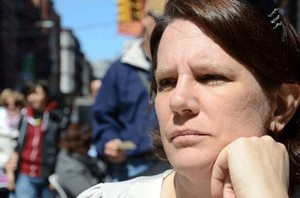 Anneli Häyrén, PhD, is a researcher in organization and gender with a main focus on gender equality and how gender constructions in every day work life affect the development for gender equality. AH teaches at the Centre for gender research, Uppsala University, as well as as in other contexts. Her previous research is about masculinity constructions in blue light organizations, fire fighters, male ambulance nurses and police.
Anneli Häyrén, PhD, is a researcher in organization and gender with a main focus on gender equality and how gender constructions in every day work life affect the development for gender equality. AH teaches at the Centre for gender research, Uppsala University, as well as as in other contexts. Her previous research is about masculinity constructions in blue light organizations, fire fighters, male ambulance nurses and police.
Susana Oliveira
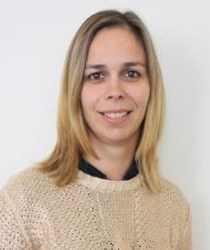 Susana Oliveira is Postgraduate in Literatures and Humanities from Lisbon University and is the International Cooperation Department Coordinator at Kerigma. She represents Portugal as Vice-President of EAEA - European Association for the Education of Adults and she is also a board member of the national umbrella association for adult education in her country - APCEP - Portuguese Association for Culture and Continuing Education. She is part of the National Point of Contact in Portugal for the European Center for Women & Technology and a founding member of Woman in Tech, an activist association for women entrepreneurship.
Susana Oliveira is Postgraduate in Literatures and Humanities from Lisbon University and is the International Cooperation Department Coordinator at Kerigma. She represents Portugal as Vice-President of EAEA - European Association for the Education of Adults and she is also a board member of the national umbrella association for adult education in her country - APCEP - Portuguese Association for Culture and Continuing Education. She is part of the National Point of Contact in Portugal for the European Center for Women & Technology and a founding member of Woman in Tech, an activist association for women entrepreneurship.
She works with national and transnational projects on non formal and informal learning, mainly addressing adults and all people in disadvantaged situations.
Rúna Baianstovu
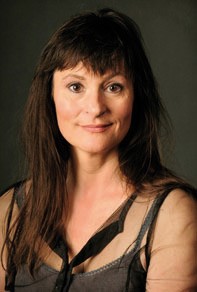 Rúna Baianstovu is senior lecturer in Social Work at Örebro University, where she has has been a researcher and teacher in sociology and social work since 2000. Her research interests and professional career have been geared towards the interaction of collective relations, migration and identity, from an intersectional perspective. As a researcher, her current focus is on honour related violence and oppression and social work (Studentlitteratur, forthcoming 2016). As a social worker, her work has dealt with the reception and introduction of refugees, and other integration related issues. Baianstovu defended her PhD in Social Work, Diversity as the Challenge of Democracy, which studies how the social welfare services, as a societal welfare bureaucracy and moral institution, understands and handles cultural diversity, in 2012.
Rúna Baianstovu is senior lecturer in Social Work at Örebro University, where she has has been a researcher and teacher in sociology and social work since 2000. Her research interests and professional career have been geared towards the interaction of collective relations, migration and identity, from an intersectional perspective. As a researcher, her current focus is on honour related violence and oppression and social work (Studentlitteratur, forthcoming 2016). As a social worker, her work has dealt with the reception and introduction of refugees, and other integration related issues. Baianstovu defended her PhD in Social Work, Diversity as the Challenge of Democracy, which studies how the social welfare services, as a societal welfare bureaucracy and moral institution, understands and handles cultural diversity, in 2012.









